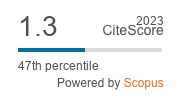Fiscal Rules and Effective Fiscal Policy
DOI:
https://doi.org/10.2478/v10103-012-0010-1Abstract
This article examines and assesses the influence of political factors on the effectiveness of pursuing fiscal policy. These factors usually cause and maintain a high budget deficit and public debt. Moreover, the problems of influence of fiscal rules on increased effectiveness of the pursued fiscal policy have been discussed. The fiscal rules are to assure macroeconomic stability in economy and improve credibility of the pursued fiscal policy by reducing the deficit, government spending, and public debt. Examples of applicable fiscal rules in the EU and Poland are presented and an attempt is made to evaluate the effectiveness of these rules in the process of consolidation of public finances.
Downloads
References
Alesina A., Tabellini G. (2005), Why Is Fiscal Policy Often Procyclical?, ‘NBER Working Paper’, Cambridge MA, September
Google Scholar
Alesina A., Tabellini G. (1990), A Positive Theory of Fiscal Deficits and Government Debt, ‘Review of Economic Studies’, no. 57
Google Scholar
Catao L.A., Sutton B.W. (2002), Sovereign Defaults: the Role of Volatility, IMF Working Paper 02/149
Google Scholar
Cottarelli C. (2009), (approved), Fiscal Rules-Anchoring Expectations for Sustainable Public Finances, IMF, the Fiscal Affairs Department, November 11
Google Scholar
Działo J. (2009), Polityczne uwarunkowania jakości instytucji fiskalnych, Wydawnictwo Uniwersytetu Łódzkiego, Łódź
Google Scholar
Gavin M., Perotti R. (1997), Fiscal Policy in Latin America, [in:] NBER Macroeconomics Annual, Cambridge MIT Press
Google Scholar
European Commission, The long-term sustainability of public finances in the European Union, European Economy, no 4/2010
Google Scholar
Gazeta prawna.pl, 4 January 2011
Google Scholar
IMF Annual Report 2009
Google Scholar
IMF Annual Report 2010
Google Scholar
Kaminsky G.L., Reinhard C.M., Vegh C.A. (2004), When It Rains, It Pours: Procyclical Capital Flows and Macroeconomic Policies, [in:] Gertler M., Rogoff K. (eds.) NBER Macroeconomic Annual 2004, Cambridge, MA: MIT Press
Google Scholar
Kell M. (2001), An Assessment of Fiscal Rules in the United Kingdom, International Monetary Fund, Washington DC, ‘Working Paper’, no. 01/91
Google Scholar
Polish Constitution of 2 April 1997, Journal of Laws No. 78, item 483, art. 216, para. 5
Google Scholar
Public Finances in EMU 2009, European Commission, European Economy 5/2009
Google Scholar
Reinforcing economic policy coordination, European Commission, 12th May 2010
Google Scholar
Schick A., Post-Crisis Fiscal Rules: Stabilising Public Finance while Responding to Economic Aftershocks, OECD Journal on Budgeting, vol. 2010/2
Google Scholar
The Treaty on European Union, www.europarl.europa.eu/parliament/archive
Google Scholar
The Act of 27 August, 2009, on public finances, Journal of Laws No. 157 item 1240
Google Scholar
The Act of 16 December 2010 amending the Public Finance Act and other Acts, Journal of Laws of 2010, No. 28, item 146, No. 96, item 620, No. 123, item 635 and No. 152, item 1020
Google Scholar
Von Hagen 2005b
Google Scholar
Wernik A. (2002), Problemy polityki fiskalnej w kreowaniu policy mix, XXII Konferencja Naukowa NBP, Falenty
Google Scholar
Woo J. (2006), Why Do More Polarized Countries Run More Pro-cyclical Fiscal Policy?, DePaul University, Chicago
Google Scholar
Wyplosz Ch. (2011), Fiscal Rules: Theoretical Issues and Historical Experiences, paper presented at the NBER conference on „Fiscal Policy after the Financial Crisis”, Cambridge, July 1-15, 2011
Google Scholar
Downloads
Published
How to Cite
Issue
Section
License

This work is licensed under a Creative Commons Attribution-NonCommercial-NoDerivatives 4.0 International License.











